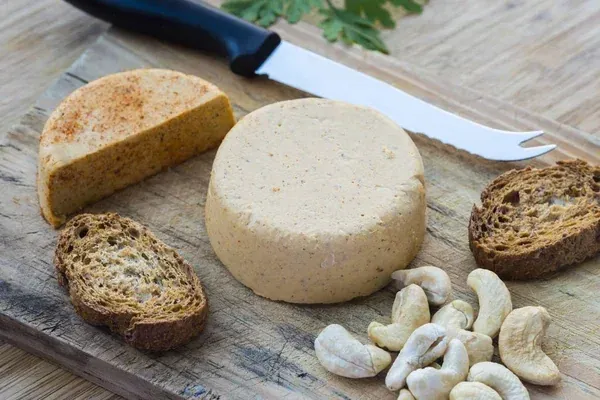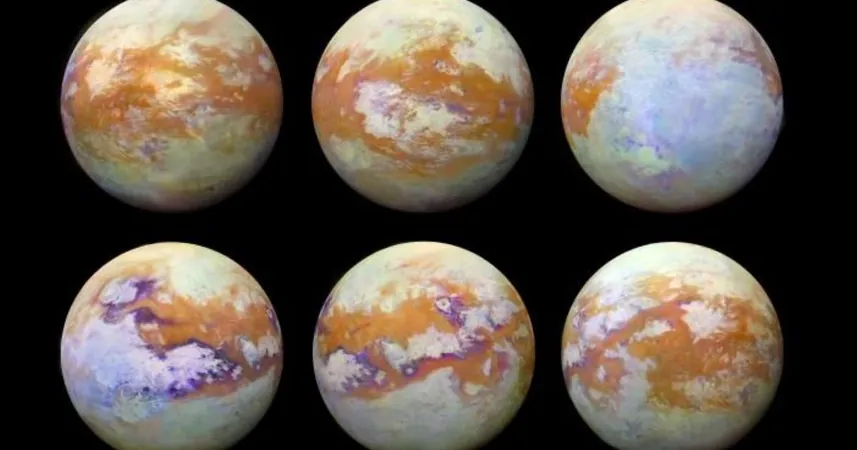
Revolutionizing Cheese: The Game-Changing Science of Plant-Based Alternatives
2025-05-03
Author: Jia
The Rise of Plant-Based Cheese
As more people lean towards plant-based diets, the demand for alternatives that satisfy cheesy cravings is skyrocketing. Traditional cheese lovers seeking dairy-free options are in luck, as researchers at the University of Guelph have made groundbreaking strides in creating plant-based cheeses that not only stretch and melt but also replicate the taste and texture of their dairy counterparts.
The Chemistry Behind the Creaminess
Crafting plant-based cheese isn't merely an art; it’s a complex science involving careful ingredient selection. Researchers focus on mimicking the roles of dairy fat and protein. While many plant cheeses rely heavily on coconut oil for that creamy richness, the high saturated fat content raised health concerns. Hence, scientists have been experimenting with healthier alternatives like sunflower oil.
Protein Power: The Secret Ingredient
Crucial to this endeavour is the choice of plant proteins that act as the cheese’s foundational structure. Researchers have examined proteins derived from peas, lentils, and faba beans, discovering substantial differences in how these proteins interact with fats and starches—which in turn affects the cheese's melting and stretching capabilities.
Alejandro Marangoni, a leading figure in this research, highlights that consumers now expect plant-based products to emulate animal products closely—a challenging yet exciting goal.
Striking the Perfect Balance
A pivotal aim for the team was to identify an ideal blend of protein and fat for optimal firmness and functionality. They found that using a mixture of 25% coconut oil and 75% sunflower oil combined with pea protein resulted in a cheese with remarkable texture and melting qualities, outperforming traditional methods.
Using just 25% coconut oil with pea protein, the experimental cheese achieved an impressive firmness comparable to those made entirely of coconut oil.
A Healthier, Tastier Future
By substituting some coconut oil, researchers substantially lower saturated fat without compromising the smooth, rich feel that consumers love. Marangoni notes the goal is to increase the nutritional value while retaining that all-important melt and stretch.
Environmental Impact: A Greener Choice
Plant-based cheese manufacturing presents numerous environmental advantages. It consumes fewer natural resources than dairy farming and emits less greenhouse gas, making it a sustainable choice for eco-conscious consumers.
Despite the progress, the road ahead is bumpy. Understanding plant proteins' complex interactions remains a challenge. With more research, scientists can enhance plant-based cheeses, ensuring they not only meet expectations for taste and texture but also promote healthier eating.
What Lies Ahead?
The next phase involves exploring new plant protein types and refining oil blends further, with promising developments likely on the horizon. As innovations continue, grocery stores may soon brim with tantalizing plant-based cheese options that delight both the palate and the planet.
Thanks to this cutting-edge research, a future filled with delectable, sustainable cheese alternatives is not just possible—it’s on the way!




 Brasil (PT)
Brasil (PT)
 Canada (EN)
Canada (EN)
 Chile (ES)
Chile (ES)
 Česko (CS)
Česko (CS)
 대한민국 (KO)
대한민국 (KO)
 España (ES)
España (ES)
 France (FR)
France (FR)
 Hong Kong (EN)
Hong Kong (EN)
 Italia (IT)
Italia (IT)
 日本 (JA)
日本 (JA)
 Magyarország (HU)
Magyarország (HU)
 Norge (NO)
Norge (NO)
 Polska (PL)
Polska (PL)
 Schweiz (DE)
Schweiz (DE)
 Singapore (EN)
Singapore (EN)
 Sverige (SV)
Sverige (SV)
 Suomi (FI)
Suomi (FI)
 Türkiye (TR)
Türkiye (TR)
 الإمارات العربية المتحدة (AR)
الإمارات العربية المتحدة (AR)